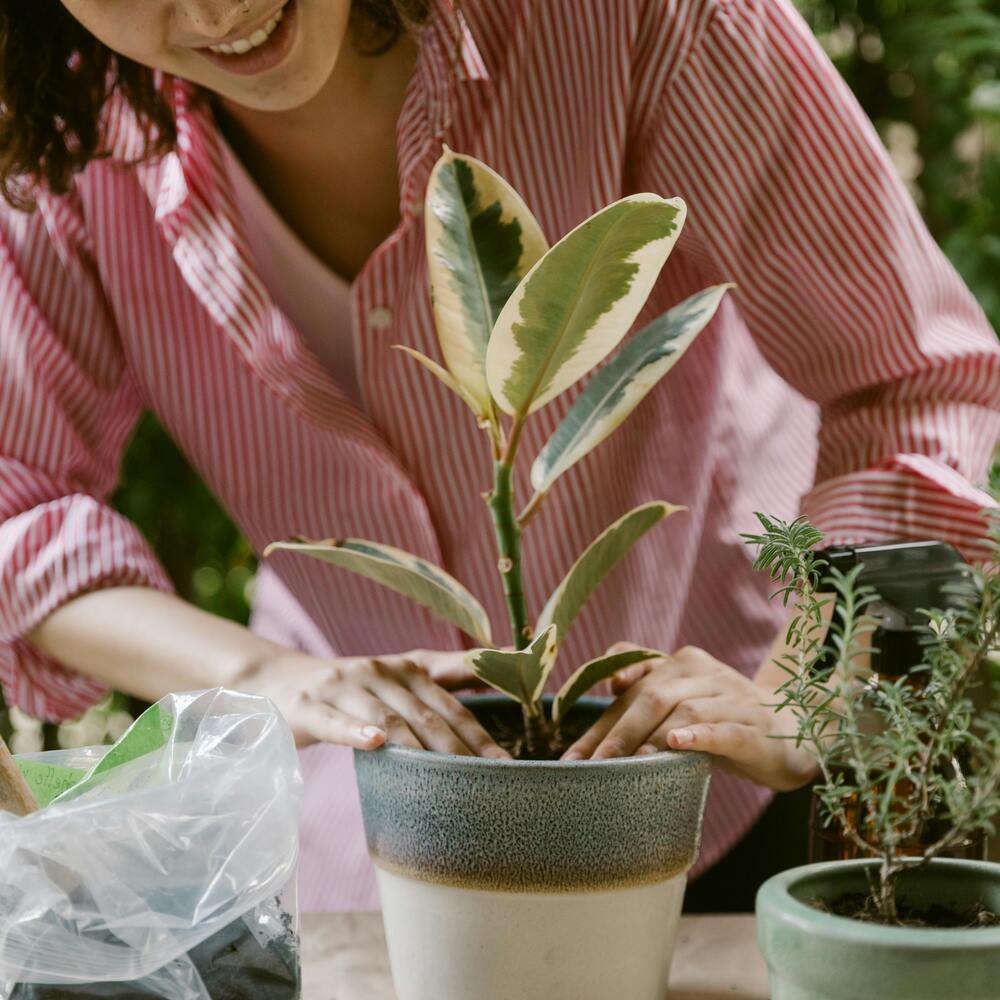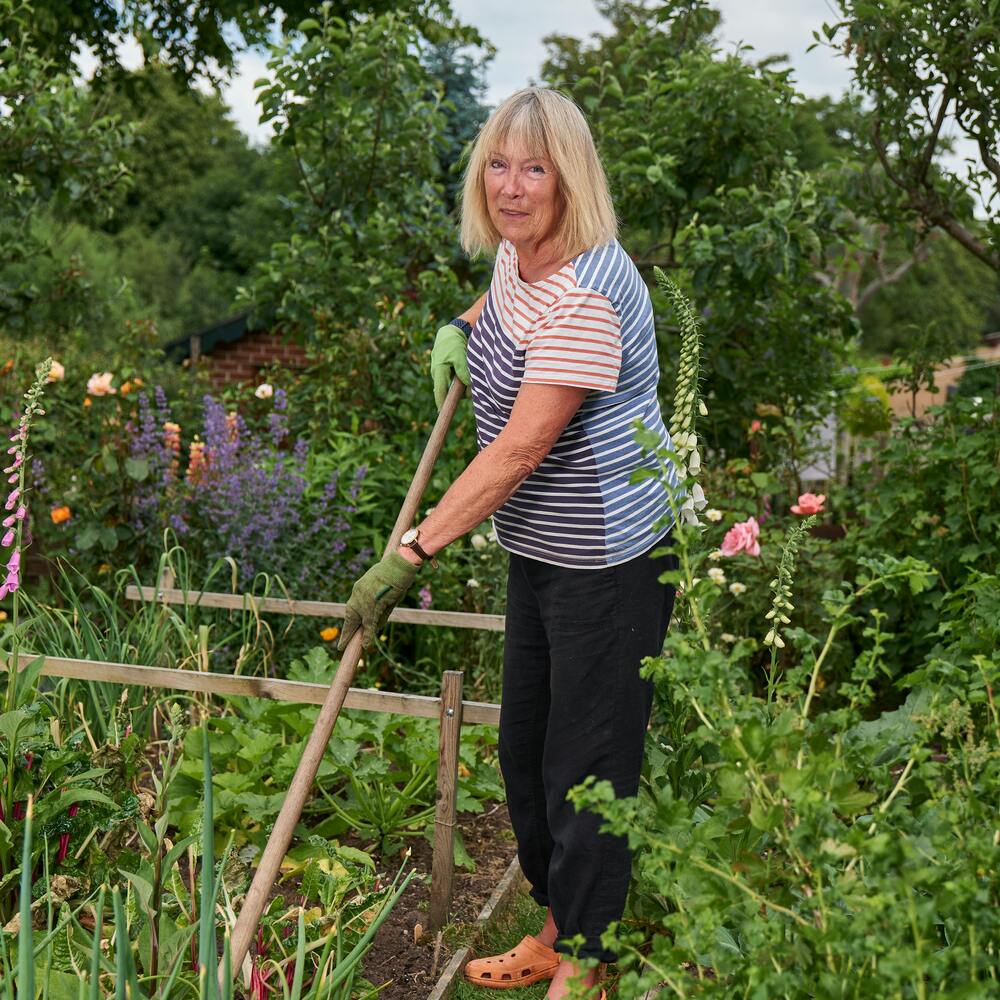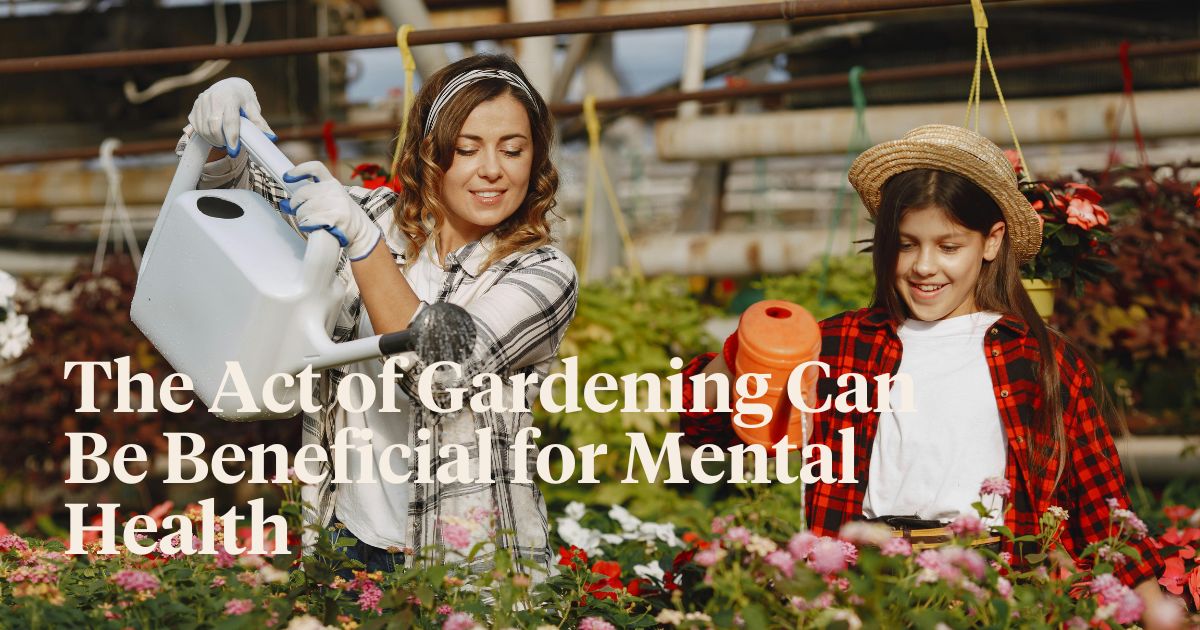There’s not just an abundance of anecdotal evidence that suggests flowers and the act of gardening can be beneficial for mental health. There are plenty of scientific studies that suggest the same.
Yes, as hands delve into dirt and eyes appreciate the symmetry of blooms, there's evidence that suggests these interactions do wonders for mental well-being. So, crafting a bouquet or cultivating a vegetable patch could be excellent exercises to reduce stress and improve mood.
Let’s explore in detail how these green-thumbed pursuits can fertilize one's journey toward inner harmony.
Gardening and Flower Arranging Can Reduce Stress
Several studies have linked gardening directly to stress reduction. For example, a field experiment published by the National Library of Medicine in 2010 offers compelling evidence. Participants were first subjected to a stressful Stroop Task, then randomly assigned to half an hour of either outdoor gardening or indoor reading. Results showed that while both activities reduced cortisol levels, gardening had a significantly stronger effect on bringing these stress markers down.

Moreover, the study found that gardening not only tempered cortisol but also fully restored positive mood states—a recovery not mirrored by reading.
Gardeners themselves often tell tales that align with these findings. Many gardeners report that they emerge from their plots feeling revitalized and mentally clear; as if each seed planted helps bury troubling thoughts deeper into the soil.
So, it seems that gardening can indeed be a potent antidote to acute stress; granting restoration and resilience amid life's inevitable ebbs and flows.
Digging deeper (pun intended), gardeners often describe an immersion into the present moment, where time loses its grip and worries disintegrate like composted leaves. This anecdotal evidence echoes mindfulness practices, suggesting that tending to plants can foster a serene state of mind.
Transitioning from soil to vases, flower arranging emerges as another bastion against bustle and frenzy. Flower arranging boasts its own variety of mental perks, with real-life examples underscoring its emotional impact. For instance, Elizabeth Murray, the author, and photographer who is most famous for her work in Monet’s gardens at Giverny (which is considered to be one of the best botanical gardens in the world), characterizes flower arranging as a dance with the beauty of nature—an intimate act that carries one away from the drumbeat of stress.
Also, a study by the American Society for Horticultural Science indicates that hospital patients with plants in their rooms report less fatigue and pain. So, for many people, gardening and floral arrangements can indeed cultivate moments of tranquility and reduce stress.
To be more energetic and well in home you need to arrange to know which plant and flower are good for your home, here you can check our article, eleven plants considered lucky for your home according to Vastu Shastra
Gardening and Flower Arranging Can Improve Mood
Now, let’s consider a study from the Journal of Evolutionary Psychology, which suggests that interacting with plants can trigger a primal response, releasing endorphins and boosting mood. Participants handling indoor plants reported increased feelings of well-being compared to those working on computers.
When it comes to flower arranging, the enhancement of mood becomes an art form. The Harvard School of Public Health teamed up with Massachusetts General Hospital and discovered that people feel happier and more energetic after looking at fresh blooms first thing in the morning.

Gardening and Flower Arranging Can Enhance Mental Well-being
Engaging with the earth through gardening has been scientifically observed to bolster mental well-being. For instance, a seminal study from 2011 published in the Journal of Advanced Nursing revealed that individuals with chronic fatigue who took up gardening reported improvements in mood and self-esteem. The act of planting and nurturing life appears to translate into personal growth and healing.
In the realm of floral arranging, psychological benefits are arranged neatly alongside every stem. The American Horticultural Therapy Association outlines numerous case studies where flower arranging has played a therapeutic role in mental health settings—helping individuals to communicate nonverbally and develop a sense of achievement.
Nature's Embrace: Beyond the Garden
The restorative power of nature extends far beyond the confines of cultivated gardens. A robust body of research attests to the mental health benefits provided by natural environments.
One influential study, published in 2015 by Proceedings of the National Academy of Sciences, found that individuals who walked for 90 minutes in a natural setting reported lower levels of rumination—a pattern of negative thought associated with heightened risk for depression—compared to participants who walked in an urban environment.
This aligns with a concept known as eco-therapy or green therapy, which emphasizes the therapeutic effects of being outdoors. Exposure to natural landscapes not only has been shown to reduce stress but also enhance cognitive function and improve mood.
It posits that immersing oneself within nature can act as a gentle yet potent antidote to the strains of modern living, nurturing mental well-being in ways both subtle and profound.

Complementing Natural Remedies with Professional Support
While nature-based hobbies like gardening and flower arranging can significantly boost mental well-being, professional support remains a cornerstone of comprehensive care for many people with mental health issues.
These options not only provide tailored therapeutic approaches but also help individuals navigate more complex psychological challenges:
- Licensed therapists, such as these professional therapists in Austin TX, offer personalized counseling to address a range of issues. Therapies include trauma therapy, anxiety therapy, and depression therapy.
- Psychiatrists specialize in the diagnosis and treatment of mental illness, including medication management.
- Support groups facilitate shared experiences and coping strategies among peers.
- Online therapy platforms provide accessible care, especially for those with time or mobility constraints.
Integrating such professional services with the grounding practices of gardening and floral design creates a synergistic approach to maintaining mental wellness, ensuring that individuals have robust support systems on their journey toward holistic health.
Conclusion
Immersion in the simple acts of gardening and flower arranging stands as a testament to nature's inherent ability to improve mental equilibrium. Without a doubt, one of the most accessible therapies - readily available and brimming with potential - lies within our reach, perhaps just beyond our windowsills or at the nearest plant nursery.
When life's tempo accelerates to an overwhelming cadence, remember that peace might be found in the reprieve offered by soil, seeds, and petals. Practical yet profound, gardening and flower arranging activities offer more than aesthetic pleasure; they serve as agents of tranquility amidst chaos. So, while professional support remains invaluable for many, incorporating these natural practices may very well heighten resilience and foster sustained mental vigor.
Let your hands work the earth and let your eyes feast on blossoming beauty. In doing so, you can nurture a healthier state of mind.
Step outside and engage with nature's rhythm. Take time to savor the quiet joy of nurturing growth, both in the garden and within oneself. As each day unfolds, consider this simple yet impactful ritual a foundational piece of your mental health toolkit. Embrace it as both solace and strength—and watch as your well-being blossoms alongside your blooms.










